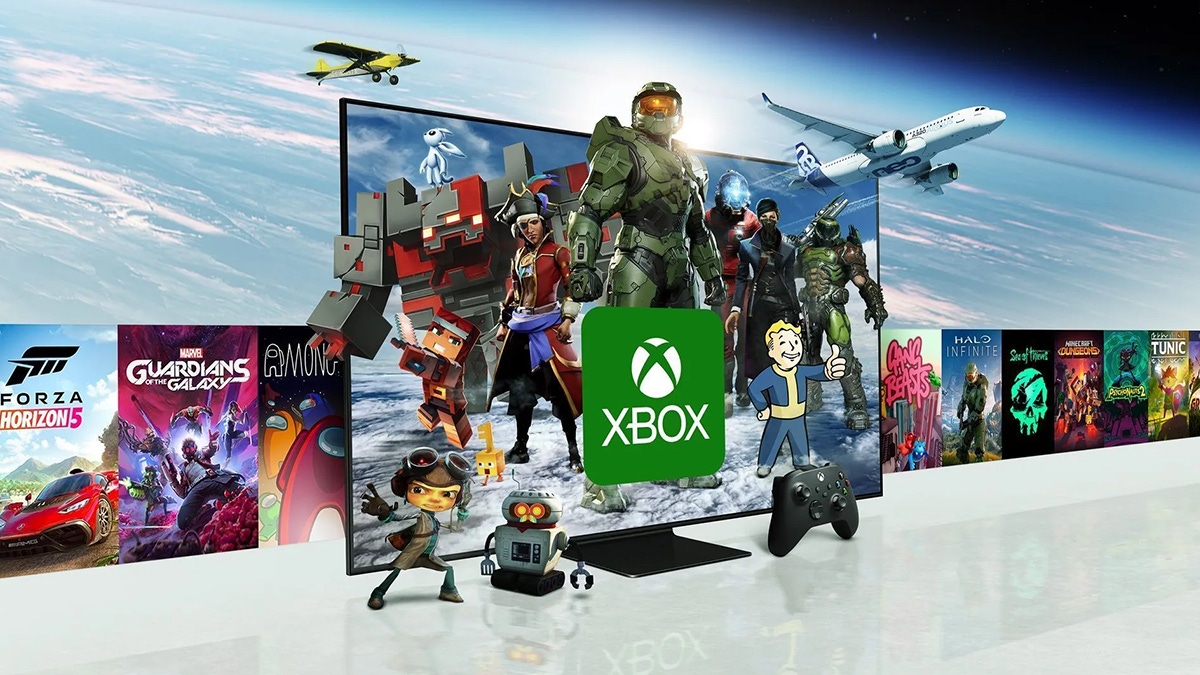UK regulator says Activision Blizzard deal could give Microsoft "unparalleled advantage" in key markets
The CMA is concerned the deal could give Microsoft a significant advantage in areas such as subscription services and cloud streaming.

UK competition regulator the Competition and Market's Authority (CMA) has explained precisely why it's concerned about Microsoft's proposed $68.7 billion acquisition of Activision Blizzard (ABK) in an extensive 76 page document.
The CMA is currently assessing the deal as part of an in-depth "Phase 2" investigation, which was sanctioned after the regulator found the acquisition could potentially "harm rivals."
Expanding on those concerns in a new report, the CMA believes the proposed merger could give rise to the "realistic prospect of a substantial lessening of competition (SLC) in gaming consoles, multi-game subscription serves, and cloud gaming services."
So, the bottom line here is that the CMA is worried Microsoft could gain a significant advantage over its competitors if the deal is approved.
Blockbuster appeal
Clearly, there's a lot to dig into here, but some of the CMA's core concerns relates to platform exclusivity, subscription services and cloud platforms, and the huge appeal of the Call of Duty franchise.
Starting with the first point, the CMA said it believes the deal could allow Microsoft to make ABK content, including franchises like Call of Duty, exclusive to Xbox or Game Pass or "other wise degrade its rival's access to ABK content, such as by delaying releases or imposing licensing price increases."
It's worth noting that Microsoft has already said it won't be (immediately) pulling major franchises like Call of Duty from rival platforms, but the CMA isn't convinced that Microsoft will allow those key franchises to remain on platforms such as PlayStation in perpetuity.
"The CMA found that the potential strategic benefits to Microsoft of using ABK’s content to foreclose rivals— such as expanding the Game Pass user base and strengthening network effects in its gaming ecosystem—could outweigh any immediate losses in terms of licensing revenues," reads the document.
"The CMA notes that Microsoft has followed this approach in several past acquisitions of gaming studios, where it made future game releases from those studios exclusive in consoles to Xbox (such as the upcoming Starfield and, based on Microsoft's public statements, Elder Scrolls VI from Bethesda, a studio Microsoft acquired as part of its USD 7.5 billion acquisition of ZeniMax in 2021)."
Notably, the CMA suggests that Sony will be the competitor most at risk if Microsoft was to make ABK content exclusive to Xbox platforms, and seems fairly convinced that Nintendo wouldn't feel the effects as much, largely because its business isn't as reliant on triple-A titles from third-party developers and publishers.
For instance, the CMA said it has received evidence that Call of Duty has higher levels of user engagement and revenue spend on PlayStation than Microsoft estimated, and that Sony believes it has the "highest awareness and ownership levels of all third-party franchises."
"These Call of Duty gamers spend considerable amounts of money on other PlayStation games and hardware, which substantially increases the revenue impact of having Call of Duty on the platform," wrote the CMA.
"The CMA believes that the Merged Entity may have the ability to engage in total and partial foreclosure of rival console platforms, in particular Sony who is currently Microsoft’s main and closest competitor in this area."
An "unparalleled advantage"
There are also concerns about how the deal might propel Xbox Game Pass forward while leaving rival subscription services in the dust, with the CMA noting that, at the time of writing, ABK games could in principle be made available on any multi-game subscription service.
If Microsoft's acquisition is approved, however, the CMA suggests the Xbox maker would "gain control of this important input and could use it to harm the competitiveness of its rivals."
"As the multi-game subscription market is still in its infancy, the effect of the Merger could be to tip or significantly increase concentration in the market in Microsoft’s favour before future rivals have a chance to develop," it continues. "The CMA therefore believes that the Merger gives rise to significant competition concerns in multi-game subscription services (including cloud gaming services, to the extent these are distributed through multi-game subscription services)."
Those concerns extend to the realm of cloud gaming, with the CMA claiming that Microsoft, as the owner of Activision Blizzard, might gain an "unparalleled advantage" over current and potential cloud gaming service providers – simply because it can host some of the biggest franchises in the world.
"Microsoft already has a combination of assets that is difficult for other cloud gaming service providers to match. By having a large and well-distributed cloud infrastructure, Microsoft will be able to host games on its servers on preferential terms and reach gamers throughout the world without having to pay a fee to third- party cloud platforms," continues the document.
"The Merger would, therefore, bring together the company in a uniquely strong position to offer cloud gaming services with one of the industry’s strongest gaming catalogues."
The CMA said it recognises that such an outcome could have knock-on effects on independent game developers and publishers who would struggle to compete with Microsoft's portfolio, and who could be "disadvantaged in a number of ways, such as by having to pay higher fees or by being demoted on Microsoft’s gaming ecosystem."
"The CMA therefore believes the Merger could substantially reduce competition in cloud gaming services," finished the CMA.
The great debate
In short, then, it's clear the CMA has numerous concerns about how the power balance within the game industry would shift were Microsoft to purchase Activision Blizzard. Indeed, the CMA explained that, as a result of its concerns, it believes there is a "realistic prospect" of an SLC in within the game console, subscription service, and cloud gaming markets should the deal go through.
For its part, Microsoft has prevously stated it is "ready to work with the CMA" to address any concerns it might have, but it'll be interesting to see how the company reacts to the regulator's latest take.
At the time of writing, Microsoft's Activision Blizzard deal has been approved in some regions such as Brazil and Saudi Arabia. The CMA has set a statutory deadline of March 1, 2023, to publish its own report into the potential risks of the acquisition, so expect to hear more from the regulator in the coming months.
Responding to the CMA's latest output, a Microsoft spokesperson told Game Developer the company fully expects the deal to be approved.
"This deal will benefit gamers, developers, and the industry as we seek to bring more games to more people. We’re committed to answering the CMA's questions and ultimately believe a thorough review will help the deal close with broad confidence," they said. "We’re still on track for it to close in fiscal year 2023 as initially anticipated."
About the Author
You May Also Like









